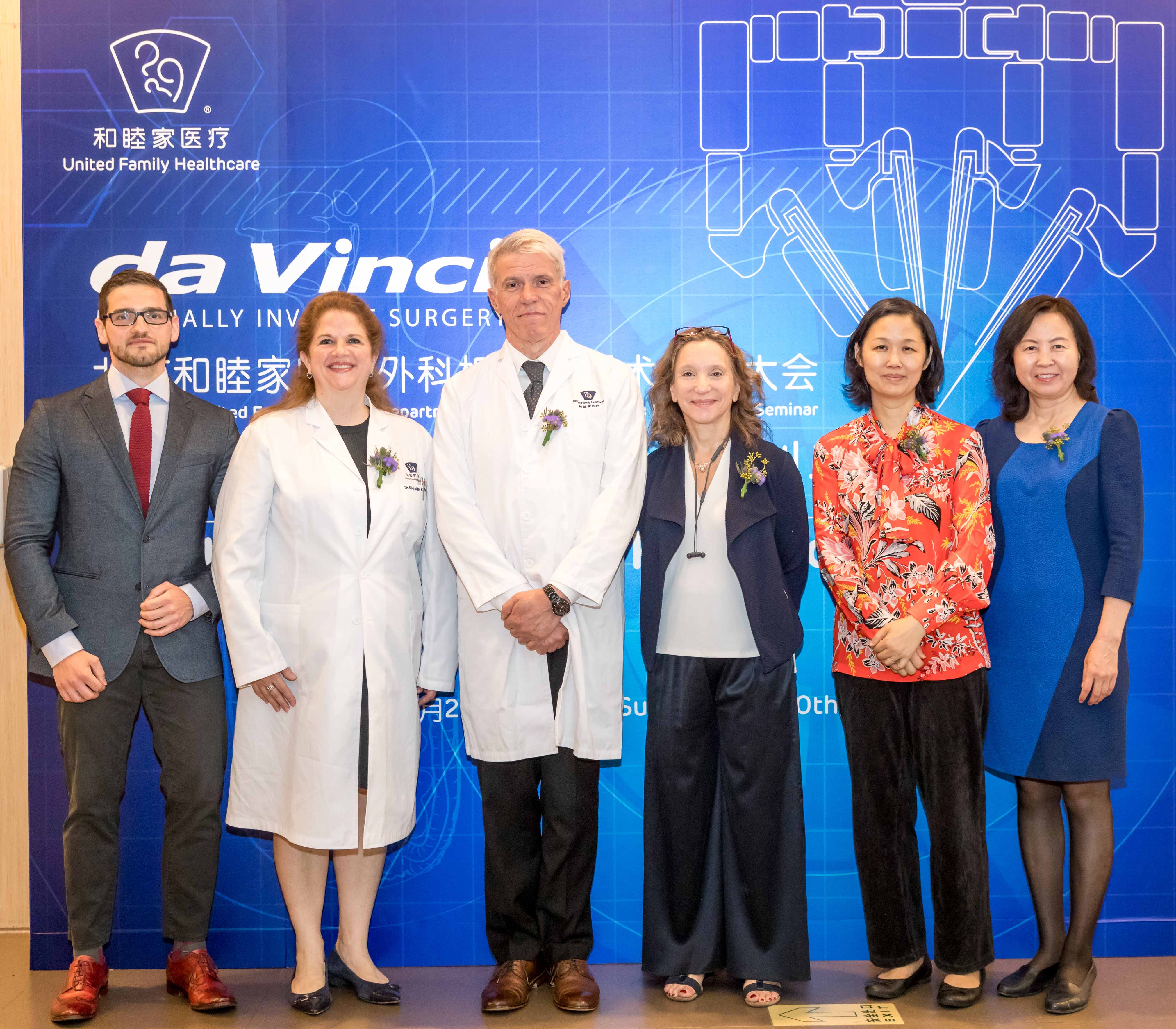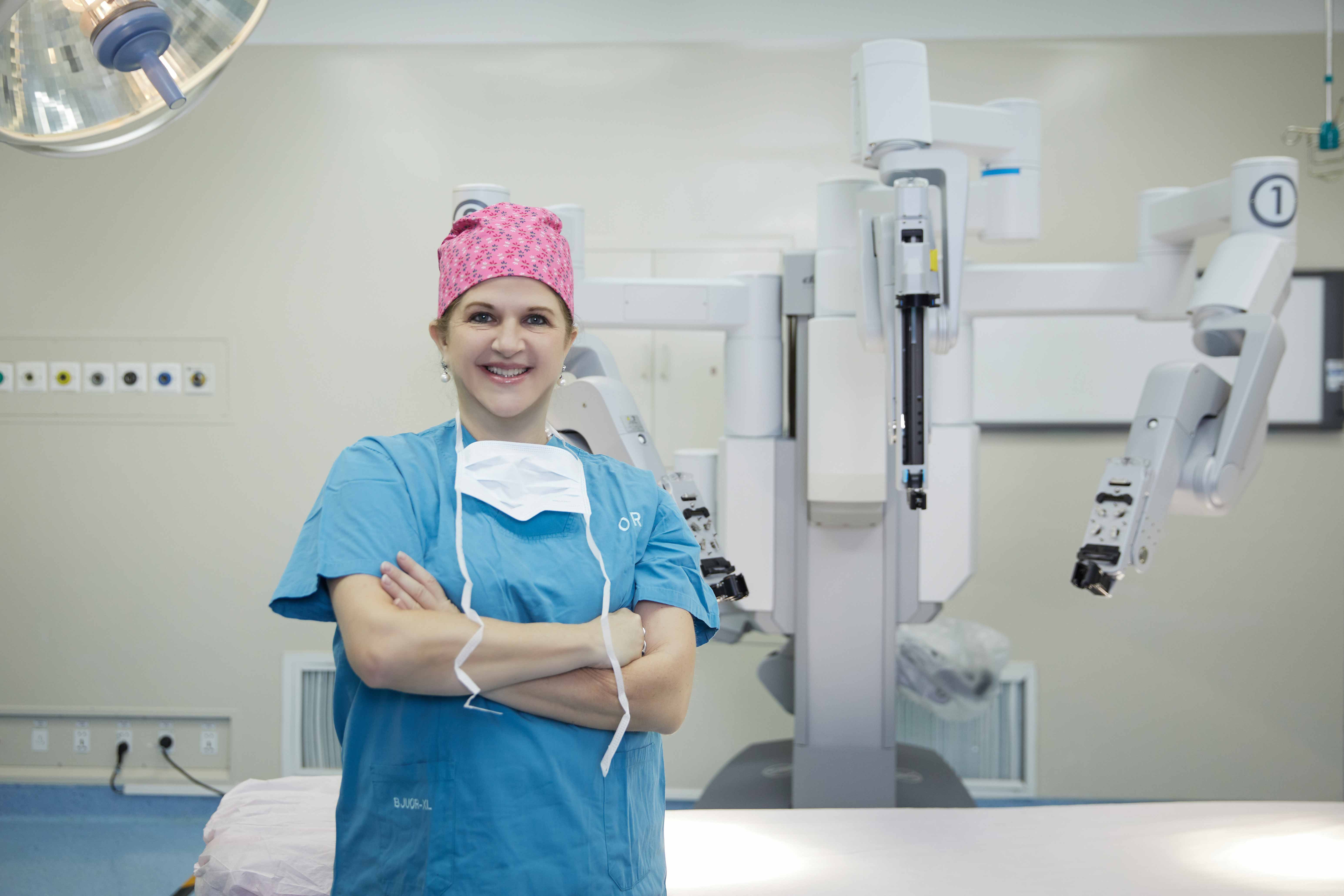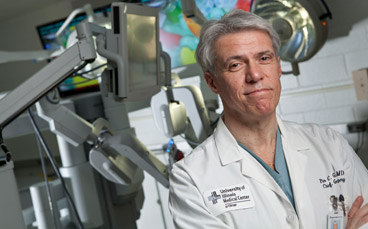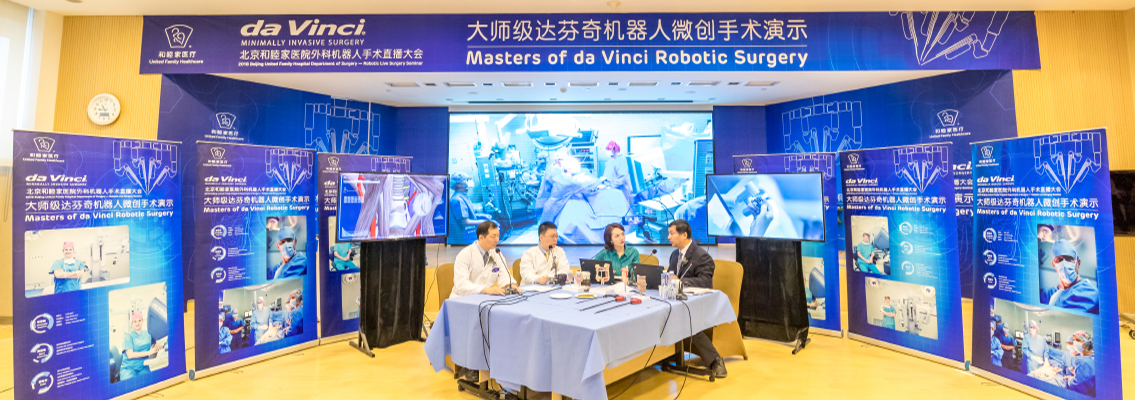On Sunday, May 20, Beijing United Family Hospital (BJU) hosted a day of live robotic surgeries. Three pioneering surgeons from across the globe performed three different operations as surgical experts provided commentary.
If you followed the live broadcast of this seminar yesterday, you would have seen three surgeries: one colectomy (removal of the bowel), one bariatric surgery (stomach surgery for obese patients), and one thyroidectomy (removal of the thyroid). Each surgery was performed using the da Vinci Surgical System – a robotic assistant that allows surgeons to operate through small incisions with extra precision and dexterity while leaving the patient with minimal scarring. All three surgeries were smooth and successful and all of the patients can, in all likelihood, look forward to a swift recovery.

Bariatric Surgery
This umbrella term refers to a fairly new group of surgical treatments for obesity. At the Masters of Robotic Surgery seminar, we witnessed a sleeve gastrectomy, which involves surgically reshaping the stomach to make it smaller. This type of surgery is often viewed by the general public as a form of cosmetic surgery, but its results go far beyond looks. Thanks to the weight-loss that the surgery facilitates, patients are often able to reduce their morbidity markers and extend their life expectancies significantly. Compared to other forms of gastric surgery for weight loss, sleeve gastrectomies offer fewer surgical complications and a reduced risk of malabsorption issues.
This surgery was led by BJU’s Section Chief of General Surgery, Dr. Michelle Savu. Trained in the USA, she has over two decades of clinical experience, performs all kinds of general surgery, and has been performing robotic surgery since 2014. Dr. Savu specializes in bariatric and foregut surgery.

Colectomy
This procedure, also called a bowel resection, is a treatment or preventative measure for diseases or blockages in the colon. It is most commonly performed on patients with colon cancer. It involves removing either the entirety or a section of the large intestine.
Performing this surgery on May 20 was Dr. Pier Cristoforo Giulianotti, a renowned robotic surgeon. He is the head and chief of the division of minimally invasive and robotic surgery at the University of Illinois at Chicago (USA). By any measure, Dr. Giulianotti is an authority on robotic surgery. He has performed over 2,000 robotic surgeries, founded the International School of Robotic Surgery in Italy, and proctors many teams of surgeons around the world.

Thyroidectomy
The thyroid is a gland that is located in the front of the neck. Surgery on the thyroid used to involve making an incision on the surface of the patient’s skin (often in the neck) but, with the invention of robotic surgery, thyroid surgery can now be done through the mouth. This leaves no scars on the patient’s skin and allows for faster recovery. Because the surgical robot has very small and very flexible surgical instruments, a delicate surgery in such a small space on such a small organ can be performed much more easily.
Dr. Zhang Bin of the Peking University Cancer Hospital performed the thyroidectomy at the Masters of Robotic Surgery seminar yesterday. Dr. Zhang has three decades of clinical experience and two decades of experience with microsurgery. He specializes in head and neck surgery and is the chief of the department of head and neck surgery at Peking University Cancer Hospital.
What’s all this about a robot surgeon? Learn all about the da Vinci Surgical System here.
What other kinds of advanced minimally invasive surgery can we do at BJU? Watch this clip to learn about SuperPATH minimally invasive hip replacements.
Want to watch last year’s da Vinci surgery live broadcast? Scan the QR code in this article.










